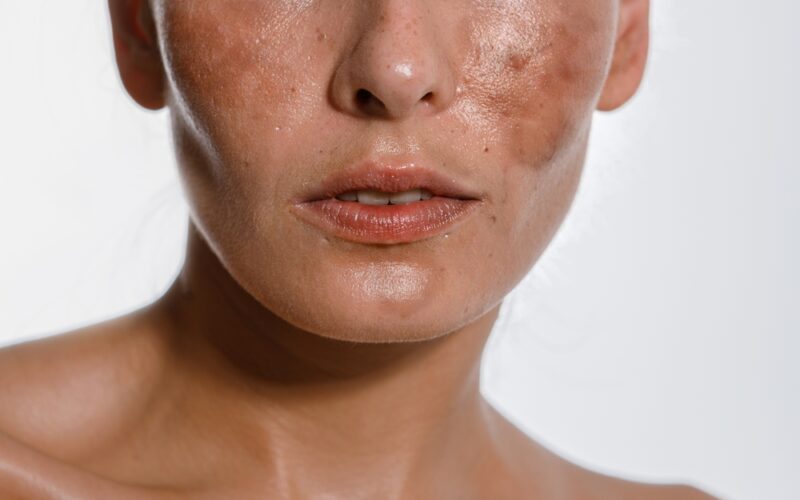Hydroquinone has been a trusted skin-lightening ingredient for decades, but you might be wondering: is hydroquinone safe for treating dark spots? While hydroquinone safety concerns have circulated online, understanding the facts can help you make informed decisions. Let’s separate fact from fiction about this dermatologist-recommended treatment.
Why There’s Confusion Around Hydroquinone Safety
The confusion surrounding hydroquinone safety concerns stems from its complex regulatory history. While hydroquinone is now approved by the FDA for over-the-counter use in concentrations up to 2% and by prescription up to 4%, it was temporarily removed from the market in some countries due to concerns about potential long-term effects.
Several factors contribute to concerns about hydroquinone skin damage. One major source of confusion comes from regulatory variations, where hydroquinone banned headlines often refer to restrictions in countries like EU member states, South Africa, and Australia. These restrictions led to widespread misconceptions about its overall safety in regions where it remains legal. Additionally, the varying concentration limits in different countries—some allowing up to 4% prescription strength while others restrict over-the-counter use—create uncertainty about appropriate use. Social media platforms often amplify these concerns, sharing stories of potential side effects without the proper scientific context, making it challenging for consumers to separate fact from fiction.
The FDA maintains that hydroquinone is safe when used as directed, and it’s considered the gold standard for treating hyperpigmentation among dermatologists.
What Dermatologists Say About Using Hydroquinone
Dermatologists overwhelmingly recommend hydroquinone as one of the most effective treatments for hyperpigmentation when used correctly. Professional consensus emphasizes that short-term use is key, with most specialists suggesting a maximum of 3-6 months before taking a break to prevent potential side effects. Regular check-ups with your dermatologist become essential for monitoring progress and adjusting treatment as needed. Many dermatologists also pair hydroquinone with complementary ingredients like tretinoin, vitamin C, or azelaic acid to enhance results while potentially reducing the risk of side effects. Starting with lower concentrations and gradually increasing strength allows your skin to adapt and helps minimize irritation. Clinical evidence consistently demonstrates that when used under proper medical supervision, hydroquinone effectively reduces dark spots with minimal risk of serious complications.
Possible Side Effects and How to Avoid Them
Understanding potential hydroquinone side effects helps ensure safe use. Common effects include mild irritation, dryness, and increased sun sensitivity. Prevent these by starting with 2% over-the-counter versions, applying only to affected areas, using SPF 30+ daily, and moisturizing regularly.
While rare, serious concerns include rebound hyperpigmentation (darker spots returning after extended use) and ochronosis (blue-black discoloration from prolonged use). To avoid complications, follow the “3-month on, 1-month off” rule, never exceed recommended dosages, and discontinue if you notice unusual darkening.
Who Should and Shouldn’t Use Hydroquinone
Hydroquinone works well for many people, but it’s not suitable for everyone. The best candidates include individuals dealing with melasma or post-inflammatory hyperpigmentation, particularly those with Fitzpatrick skin types I-IV who can commit to diligent sun protection. However, certain groups should avoid hydroquinone altogether, including pregnant or breastfeeding women, people with active skin infections or open wounds, individuals with a history of allergic reactions to hydroquinone, and those with very sensitive skin or active eczema. How to use hydroquinone safely ultimately depends on your unique skin type and condition, making consultation with a dermatologist essential for choosing the right treatment path. Your dermatologist can evaluate your specific situation and determine whether hydroquinone is appropriate or if alternative treatments would better suit your needs.
How to Use Hydroquinone Safely at Home
To incorporate hydroquinone safely into your routine, follow these essential guidelines. Begin with patch testing by applying a small amount to your inner forearm and waiting 24-48 hours to check for reactions. Start conservatively with over-the-counter 2% hydroquinone cream before considering stronger prescription formulations.
When applying hydroquinone, cleanse your skin thoroughly first, then apply a thin layer only to the dark spots you’re treating. Use it at night to minimize photosensitivity, and follow with a gentle moisturizer once the product has absorbed. Monitor your skin changes carefully by noting any irritation or unusual darkening, tracking progress with before-and-after photos, and scheduling regular dermatologist check-ups.
Sun protection becomes absolutely critical when using hydroquinone. Apply broad-spectrum SPF 30 or higher daily, reapply every two hours when outdoors, and consider wearing wide-brimmed hats for extra protection. Finally, stick to recommended timeframes by using hydroquinone for 3-6 months maximum, taking 1-3 month breaks between cycles, and never extending use without medical supervision.
Safer Alternatives If You’re Concerned About Side Effects
If you’re hesitant about using hydroquinone, several effective alternatives exist. Azelaic acid works well for melasma with minimal side effects, while kojic acid offers natural lightening from fermented rice. Niacinamide reduces inflammation while lightening dark spots, and vitamin C prevents new spots while fading existing ones. Alpha hydroxy acids (AHAs) exfoliate to reveal brighter skin, and licorice root extract provides anti-inflammatory benefits. Tranexamic acid has emerged as an effective option for melasma. These alternatives often take longer to show results but may be better for those seeking gentler options.
Conclusion
Is hydroquinone safe? When used correctly under professional guidance, hydroquinone remains highly effective for hyperpigmentation. The key is following recommended guidelines and limiting duration of use.
At Heally, our dermatology network can help determine if hydroquinone is right for you and guide safe usage protocols. We provide personalized care while monitoring for potential side effects.
Schedule your consultation with Heally to begin your journey toward clearer, more even-toned skin.
Sources
Campaign For Safe Cosmetics: Hydroquinone
Healthline: Everything You Need to Know About Hydroquinone
MedicalNewsToday: What to know about hydroquinone

